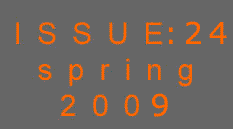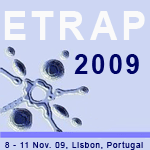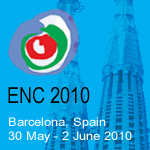ENS NEWS N° 24
Are we experiencing a lasting spring or a temporary seasonal phenomenon?
Outside the sun is shining brightly. The temperature is a lovely 18°c and the sky is cloudless – not bad at all for April in Brussels. That first genuinely warm sunshine of the year usually helps to banish any lingering symptoms of “seasonal affective disorder“ (sad) and summon up that primeval feel good factor that comes with the arrival of spring. Or, to put it more scientifically, a sudden rush of endorphins is released from the pituitary gland and hypothalamus, deep in the human brain, to make us feel happy and energised.
The frenetic fertility and creativity of spring always creates the impression that something new and exciting is going to happen at any moment. Russian author Vladimir Nabokov referred to spring as:”…something trembling on the brink of something else.” From the nuclear community’s perspective there is certainly anticipation in the air. There is a tangible sense that we are on the verge of something new and exciting; something that will give fresh impetus to the nuclear revival and make it sustainable. For many of us the exciting research that is being carried out, for example, into high and very high temperature reactors, the hydrogen economy, new medical therapies and the growing range of alternative non-electrical applications of nuclear energy, is our daily bread.
But that research has been carrying on for some time now, through good times and bad. So is the current positive hype fully justified? Well, times have changed. Nuclear energy is no longer the pariah it once was, afflicted by taboo status. It has reassumed its rightful place at the top of the European energy policy agenda. Ambitious new build projects have been launched across Europe. Even countries with long-established nuclear bans, like Italy and Sweden, are revisiting the nuclear option. Its heightened credibility, thanks largely to its recognised climate change and security of supply credentials, has provided many researchers with a more favourable context and environment within which to work. People are more prepared to listen to the nuclear case today than they have been for years and, consequently, research is more a focus of attention than before. There is also, of course, a greater demand for results; a greater responsibility to exploit the current revival and transfer that research to the marketplace. This is hardly surprising as greater anticipation goes hand in hand with greater perceived opportunity. Can we afford to let the current positive climate go to waste? What can we do to ensure that it doesn’t?
Naturally, the nuclear revival does not necessarily mean that everything is rosy in the research garden. The benefits it brings can take a long time to filter through to grass root research programmes. Not all areas of research enjoy the same degree or pace of support; the same visibility. Then there is the perennial problem of increasing and sustaining funding, only this time it has added significance because of the global financial crisis. Positive words and encouraging signs count for little if the money isn’t there. In some countries a persistent lack of political will and vision can undermine progress even when the conditions for it are favoruable.
So, are researchers experiencing a lasting nuclear spring, or is it just a temporary seasonal phenomenon? Perhaps it’s just me experiencing an endorphin rush as I contemplate spring from my office window? What do you think? Send ENS NEWS your personal testimony of what it is like working at the research front line today. To what extent – if any – do you feel that your work and working environment have improved compared to a few years ago - when talk of an impending nuclear revival seemed like pie in the sky? A lot of talented young scientists and future scientists considering a career in nuclear research would be very interested to read what you have to say. So too, I’m sure, would all of our readers.
ENS NEWS N° 24 kicks off with a Word from our President piece that focuses on what are busy and exciting times for the nuclear industry in the UK. The British government’s newly-created Department for Energy and Climate Change (DECC) now brings together parts of the environment and industry departments, underlining the synergy of energy and environmental policy. DECC recently announced that eleven potential sites for the building of new reactors had been identified. Meanwhile, the Nuclear Decommissioning Authority has announced the winners of the auction to purchase the NDA land that has been set aside for the building of the new power plants. The UK really is a hive of activity at the moment.
Andrew Teller explores how the critics of nuclear energy, whether deliberately or in good faith, often forget to apply good old-fashioned logic to their analyses, which invariably leads to biased, simplistic and uncorroborated statements.
The ENS Events section focuses on some heavyweight ENS conferences that have just taken place or are looming large on the horizon. These include PIME 2009 (the international conference for nuclear communicators that took place in Edinburgh from 15 - 18 February); RRFM 2009 (Vienna, 22 – 25 March) and ETRAP (the international conference on Education and Training in Radiological Protection), which will take place from 8 - 11 November 2009, in Lisbon.
In the packed Member Societies and Corporate Members section a series of reports focuses, among other things, on the compatibility of nuclear energy and environmental protection, the past and present of nuclear energy in Italy and a review by the Revue Générale du Nucléaire of a new book that highlights the facts and especially fiction that were presented by the French media in the aftermath of the Chernobyl disaster.
The Young Generation Network has been especially active of late. The YGN Report section this time includes a personal reflection on the PIME 2009 conference in Edinburgh, followed by news of the first meeting of the ENS YGN network and a report on that perennially successful ENS stalwart conference, RRFM 2009.
In this edition’s European Institutions section, readers are given advance "warning" of the upcoming 9th Joint Workshop on Management Systems, which will be co-hosted by the IAEA and FORATOM from 23 – 25 June 2009.
Casting its net wider, the ENS World News column features a selection of some of the most interesting recent news items from our friends at NucNet, reference to ENS- sponsored conferences and the first mention of the fact that 2011 has been named as the “International Year of Chemistry” (watch this space).
I hope that you enjoy reading ENS NEWS N° 24 and that it will contribute to that seasonal endorphin rush.
|

Mark O’Donovan
Editor-in-Chief, ENS NEWS
|
|
|




